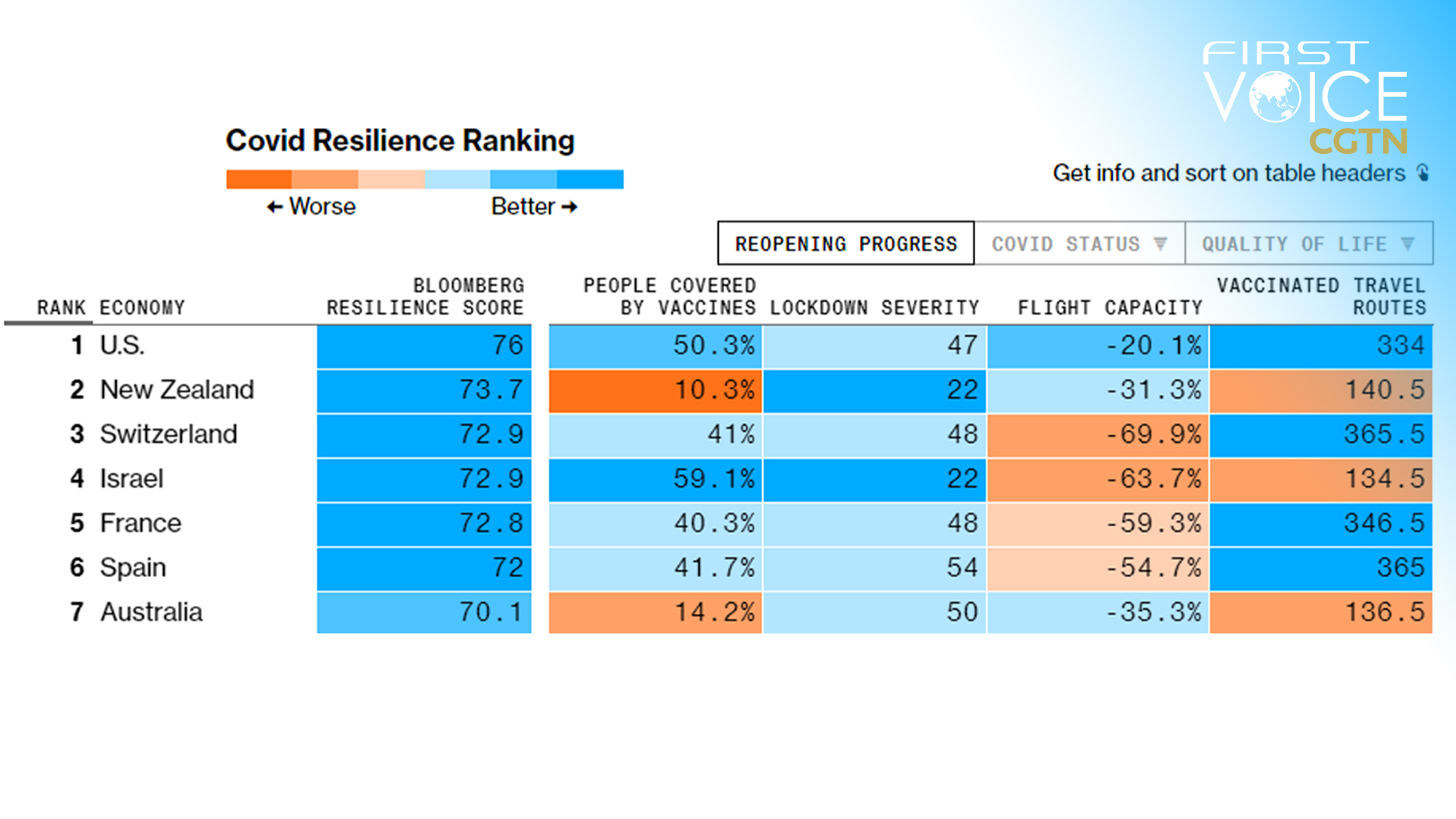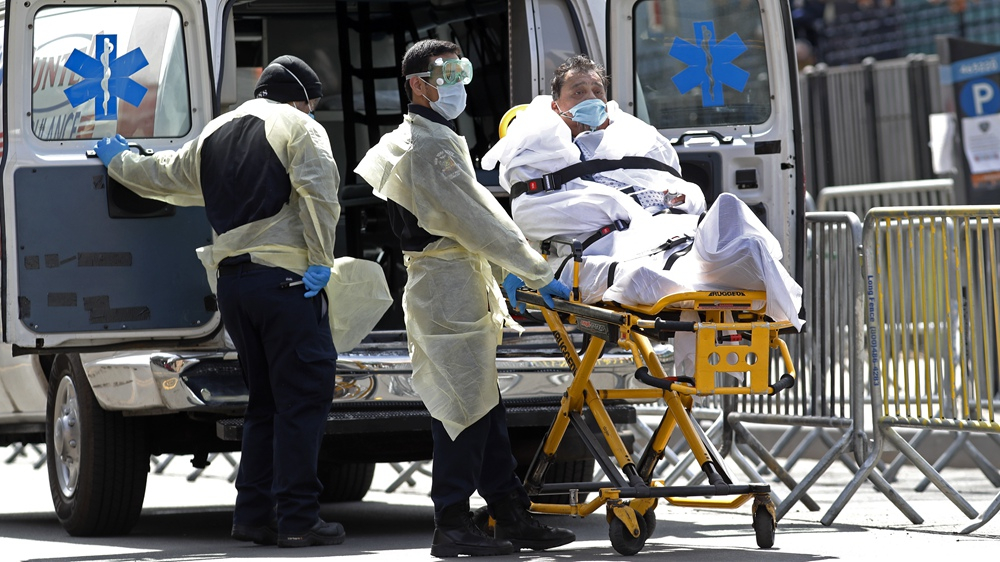
Editor's note: CGTN's First Voice provides instant commentary on breaking stories. The daily column clarifies emerging issues and better defines the news agenda, offering a Chinese perspective on the latest global events.
Bloomberg recently listed the U.S. at the top of its COVID Resilience Ranking. China's Foreign Ministry spokesperson Zhao Lijian later called the report a "childish stunt." He criticized it for leaving out several key indicators, including confirmed cases, the death toll and branding quarantine and travel restrictions as "negative factors."
The United States may be on the path to recovery now, but what makes this study flawed is that it has ultimately come at a horrific cost. This owes more to the complacency and negligence of American authorities and the country's political culture, as opposed to success.
First of all, the U.S. has the highest death toll from COVID-19, with over 600,000 lives lost. This amounts to a loss of 0.2 percent or two out of every 1,000 people in the U.S., making the COVID-19 the deadliest event in the country since the Civil War. Almost 10 percent of the entire population has tested positive for the virus.
Such a high quantity of cases is directly the product of a policy Bloomberg associates with "resilience," which involves ignoring lockdowns, opposing the wearing of face masks and social distancing. Even at the time of writing, the United States had not yet eradicated the virus completely. The Delta variant is starting to run riot in the country, and cases have rebounded to more than 30,000 a day.
This is not a sign of resilience. The U.S. vaccination rate was initially swift but buckled thereafter. It is also a reminder that there are "two Americas" at play here, deeply divided by income, class and geography. These gaping internal inequalities have made the vaccine rollout uneven, with states in the Deep South making limited progress.
As a report from CNN notes, "Alabama, Mississippi and Arkansas are the only states to have fully vaccinated fewer than 35 percent of their residents. Average daily case rates in each state were among the 10 worst in the country last week."
Again, is this a sign of a resilient country or the best place to be in a pandemic?

A patient is wheeled out of Elmhurst Hospital Center to a waiting ambulance in New York, U.S., April 7, 2020. /AP
A patient is wheeled out of Elmhurst Hospital Center to a waiting ambulance in New York, U.S., April 7, 2020. /AP
In this case, what Bloomberg, by placing the Chinese mainland at the No.8 slot, tries to write off as weaknesses in China are, in fact, strengths. China's policy of strict and localized lockdowns has been optimum in containing COVID-19 above any other country. China has frequently taken the harshest measures to beat off the smallest scale outbreaks, including beating back the highly contagious Delta variant in Guangdong Province.
The country's vaccine rollout has also, much to Bloomberg's dismissal, fast outpaced that of the United States. Despite having a much larger population, China had by the beginning of July distributed 1.3 billion doses of vaccines, while the figure in the U.S. is 335 million doses so far. With more than 3.44 billion doses administered worldwide, China has contributed over 30 percent to global vaccination. The country's superior model of organization and social obligation has meant that the rollout, unlike in the U.S., has not been unevenly distributed either.
In this case, what the report further misses out is that the United States is simply normal because of complacency, not because of objective success in beating the virus. A relaxed, anti-government and liberty-centric approach to handling COVID-19 aptly underscores the roots of America's yet unfinished disaster concerning the pandemic, to which the government responded by exporting the blame and proliferating conspiracy theories.
China has continued to take precautions because defeating COVID-19 cannot be done with short-term impulses. In the long run, this means China's resilience has been deeply underrated. Beijing has sustained a scope of normalcy and stability without a massive loss of human lives, spending trillions on government stimulus, allowing nasty variants to take hold and catering to populist instincts.
On the contrary, the United States has demonstrated itself to be one of the most dangerous locations to live in during the pandemic, not least in a society that continues to be rampant with inequality, uneven access to healthcare and inadequate public health information from authorities that cater to commercial interests and conspiracy theories.
(If you want to contribute and have specific expertise, please contact us at opinions@cgtn.com.)

